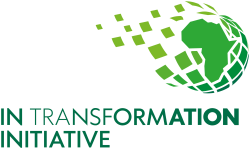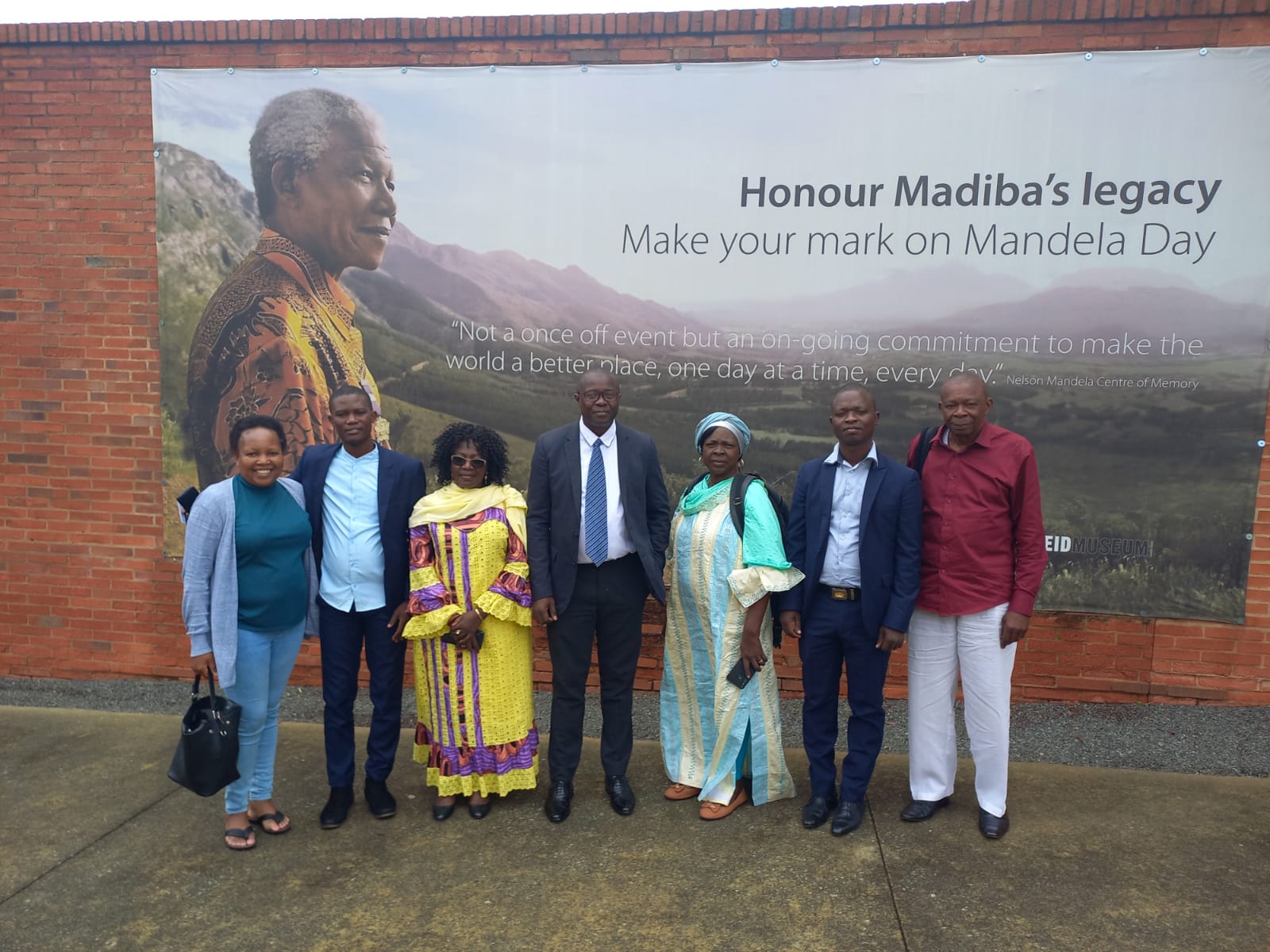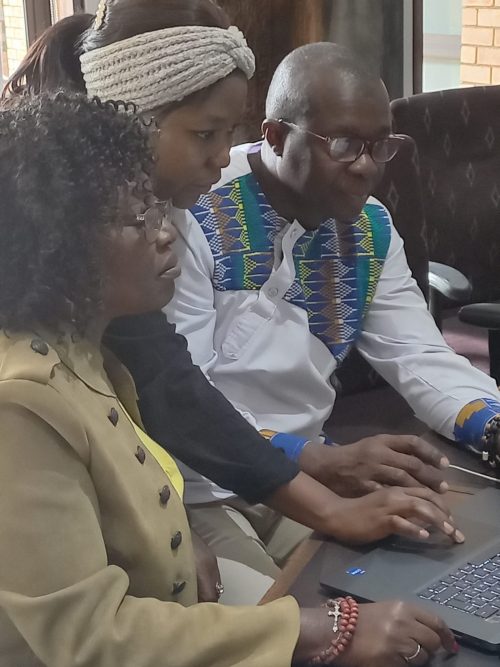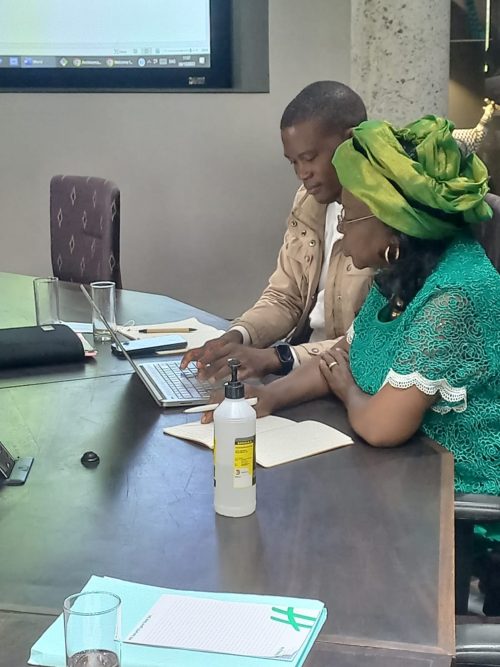From 6 to 9 December 2022, commissioners from the Commission of Truth, Justice, Reparation and Reconciliation Commission (CVJRR) of the Central African Republic (CAR) underwent a training on archives management in South Africa. The Commissioners were hosted by the ITI, with the training carried out in partnership with the Nelson Mandela Foundation.
The CVJRR which was established in 2020 has a 4-year mandate set to expire in 2024. Having been sworn in in July, 2021, the commissioners have a daunting task ahead of them given the complexity of the conflict situation in the CAR, the broad mandate given to them and resource constraints. The commissioners have since their swearing in underscored the need for capacity support to enable them to effectively deliver on their mandate. ITI as one of the partners to the CVJRR is currently supporting the commission with skills in archiving and in research and investigations.
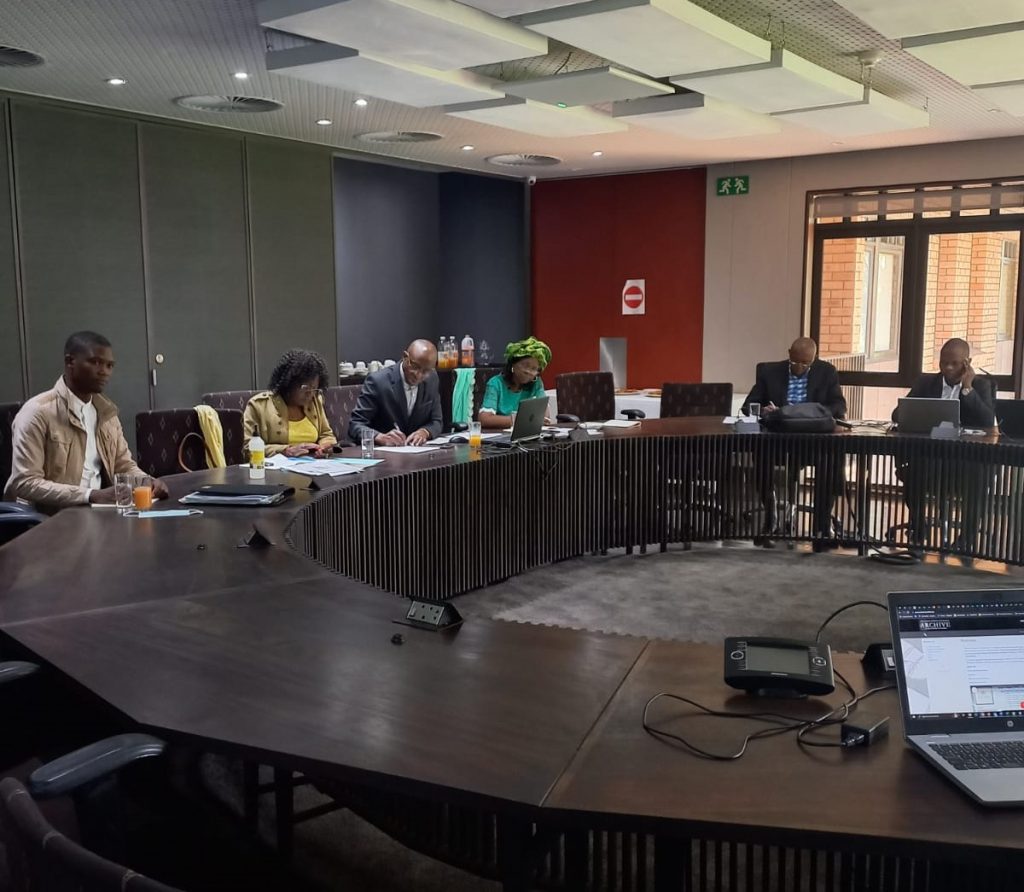
The archive management training carried out with the support of the Nelson Mandela Foundation focused on the value of keeping records of the past. Some of the key points emphasised in the training included: that through the keeping of records and in particular those associated with a truth and reconciliation commission, this can aid in the realization of the principles associated with dealing with the past (the Joinet principles), notably the right to know, the right to justice, the right to reparations and the guarantee of non-recurrence.
Archives in this regard were underscored as having the ability to provide potential documents of governance and institutional memory to the state offering the scope for citizens to demand accountability. The ability of these records to also provide evidence of what happened in the past was also underscored, with this evidence being supportive in truth-seeking exercises, the prosecution of perpetrators, and the work of restoration, restitution, and reparation.
Furthermore, the importance of records in giving society the material for narratives that are both essential to healing and problematizing the instincts towards romanticization, simplification of the past or simply forgetting or conveniently erasing the past was emphasized.
The training further covered technical elements on records, database, information and archive management, including the digitization of archives and the need to secure archival material through issues like enhancing cybersecurity.
For a country like the CAR which has been haunted by decades of continued cycles of war, gross human rights abuses, instability and insecurity since its independence in the late 50’s, a significant part of the country’s peace building, healing and national reconciliation process is intricately caught up with the need to deal effectively with this past.
In a state that has a history of the destruction of its national archives, the ability of the CVJRR archiving function to capture, document and provide these national narratives will go a long way in supporting the healing and peace process of the CAR while also filling some of the existing gaps of the country’s history. The CVJRR, as was emphasized during the training, must bequeath something to the future Central African population, so that future generations will know what went wrong in the course of the country’s history. The archive function is in this regard, is strategically positioned to bequeath the country with this gift, as efforts towards building sustainable peace in the country continue to scale up.
